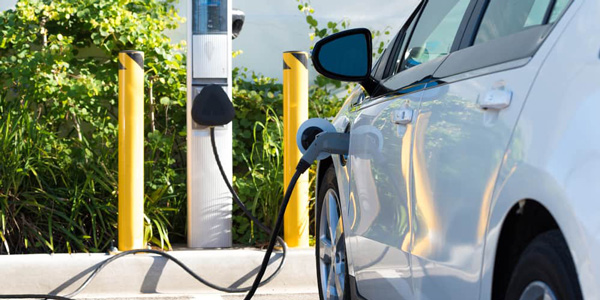By William Opalka
Massachusetts legislators last week passed a bill that seeks to remove barriers to electric vehicle ownership and allows utilities to invest in charging infrastructure.
Gov. Charlie Baker is expected to sign the bill, which moved through the legislature last year but was left out of an omnibus energy bill that addressed several clean energy items. (See Massachusetts Bill Boosts Offshore Wind, Canadian Hydro.) The bill passed in the legislature’s informal session, a day before the start of the regular session.
The new law prohibits charging station operators from requiring subscription fees from EV drivers and allows towns to create EV-only parking spaces. It also codifies regulations that would allow cost recovery for utilities’ EV infrastructure and promotes studies of issues such as the electrification of the state vehicle fleet.
The bill additionally requires “fair” rates for public charging, a detail that will be left to state regulators to determine.
Supporters said the final bill eliminated a provision directing the state Board of Building Regulations and Standards to amend building codes in order to require that new residential and commercial buildings be pre-wired for EV charging — instead leaving that as a recommendation.
“Massachusetts consumers want electric cars, but convenient access to charging stations is a barrier to getting more electric vehicles on the road,” said Megan Herzog, staff attorney at the Conservation Law Foundation. “This bill helps communities promote the charging infrastructure necessary to support increased electric car sales in the state.”
Herzog noted that transportation is the single largest contributor to Massachusetts greenhouse gas emissions. The sector is responsible for nearly 40% of in-state emissions, making their reduction crucial to meeting the targets of the state’s Global Warming Solutions Act.
“We must be mindful of our greenhouse gas emissions, especially those emitted by our transportation sector,” Senate President Pro Tempore Marc R. Pacheco (D), cosponsor of the bill, said in a statement. “We need to lessen our dependence on fossil fuels and make it easier for owners of electric cars to use their vehicles while incentivizing the transition to zero-emission transportation.”
Mark LeBel, a staff attorney at Acadia Center, said the bill’s provision to allow utility investment in charging station infrastructure codifies language from an existing Department of Public Utilities order.
“The specifics of utility proposals will be important to determine whether the three statutory criteria for approval are met,” LeBel said. “The proposals must be in the public interest, meet a need regarding the advancement of EVs and must not hinder the development of a competitive EV charging market.”
The Baker administration recently committed $14 million to the Massachusetts Offers Rebates for Electric Vehicles (MOR-EV) program, which offers state residents rebates of up to $2,500 for qualified vehicles.




